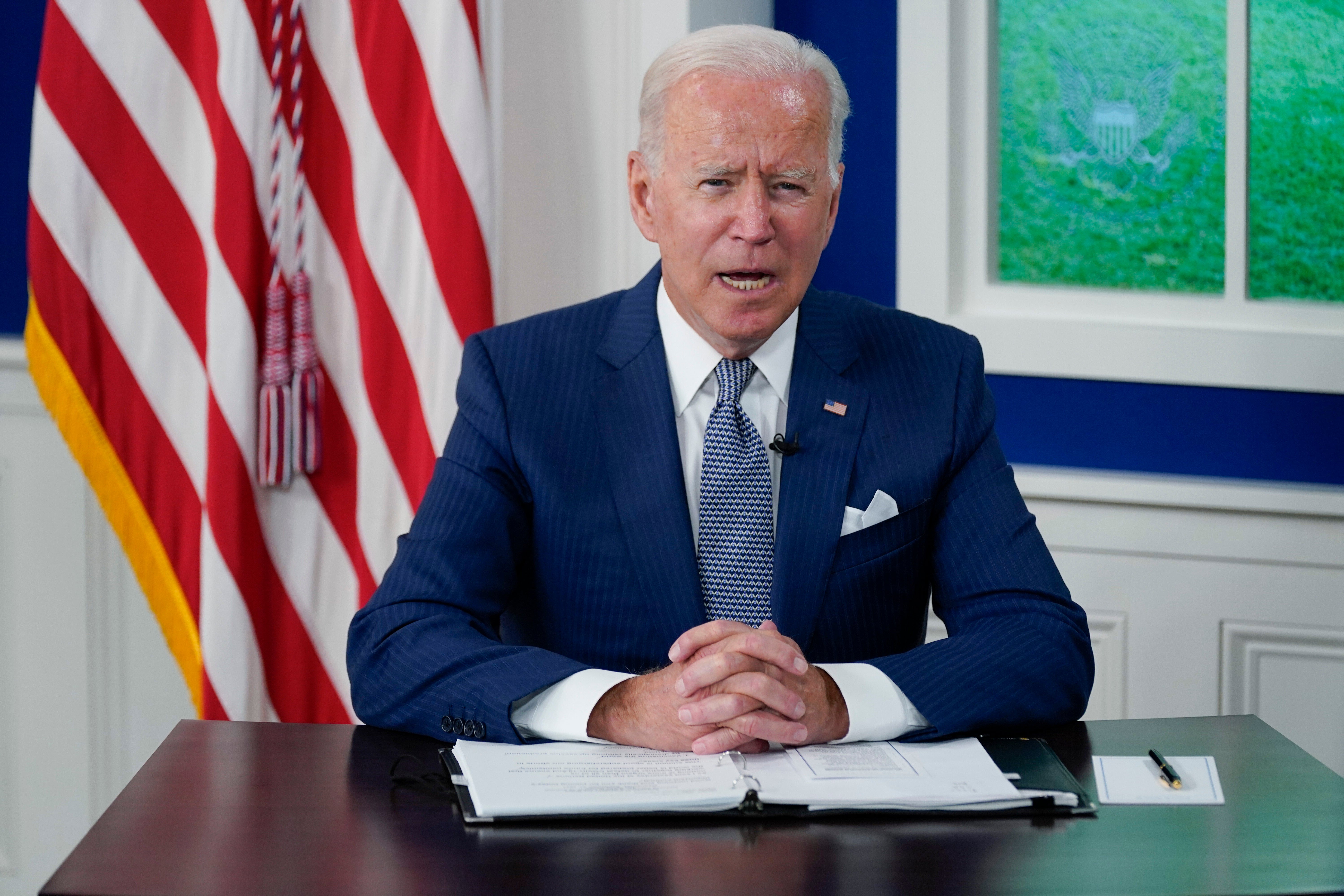If climate provisions fall out Biden’s budget, people of color will pay
History tells us that conservation solutions — however far-sighted, fiscally responsible, bipartisan, and life-saving — are the first provisions to fall out of skinny deals when push comes to shove. The cost for Black, Indigenous, and Latinx communities will be substantial


Your support helps us to tell the story
From reproductive rights to climate change to Big Tech, The Independent is on the ground when the story is developing. Whether it's investigating the financials of Elon Musk's pro-Trump PAC or producing our latest documentary, 'The A Word', which shines a light on the American women fighting for reproductive rights, we know how important it is to parse out the facts from the messaging.
At such a critical moment in US history, we need reporters on the ground. Your donation allows us to keep sending journalists to speak to both sides of the story.
The Independent is trusted by Americans across the entire political spectrum. And unlike many other quality news outlets, we choose not to lock Americans out of our reporting and analysis with paywalls. We believe quality journalism should be available to everyone, paid for by those who can afford it.
Your support makes all the difference.During the Great Depression, amid record unemployment and poverty, the Roosevelt administration established one of the most impactful environmental undertakings of the 20th century, the Civilian Conservation Corps. It engaged hardworking youth and others left jobless in conservation projects that endure to this day. Some of America’s most beautiful public lands projects resulted from the program, such as Zion National Park in Utah and Skyline Drive on the East Coast, where young people built trails, campgrounds, and roads.
While far from perfect — the original Corps segregated its workers and did not include Native American and Indigenous peoples in its ranks at all — its impact on our national parks, public lands, and outdoor heritage was immense.
Faced with a pandemic-driven economic slowdown and an immense need for ecological restoration and natural climate solutions, President Biden and allies in Congress and the environmental community have proposed creating a new Civilian Climate Corps that would correct the original Corps’ missteps, while providing jobs and skills training for all communities.
The idea of a Civilian Climate Corps has gained considerable momentum in recent weeks, but it also stands on edge of a precipice. Two committees in the US House of Representatives included essential funding for a new Civilian Climate Corps in their portions of the budget reconciliation package, the Build Back Better Act. Despite this progress — and the other critical investments we’ve seen around environmental justice, climate resilience and natural infrastructure, clean energy, and responsible carbon sequestration — nothing is certain in the ongoing negotiations around the Build Back Better Act.
A number of moderate lawmakers have drawn lines in the sand around slashing the $3.5 trillion budget reconciliation package to sums as low as $1.5 trillion. Some have cited concerns around inflation, what constitutes infrastructure, tax policy, and other issues.
History tells us that conservation solutions — however far-sighted, fiscally responsible, bipartisan, and life-saving — are the first provisions to fall out of skinny deals when push comes to shove. The cost for Black, Indigenous, and Latinx communities will be substantial and ideas that would benefit them the most, like the Civilian Climate Corps, are at risk of falling by the wayside.
Communities in places like my home state of West Virginia need our leaders in Congress to focus more on solutions for the climate, wildlife, public health, unemployment, and racial injustice crises than on top-line numbers.
A new Civilian Climate Corps could deliver restoration and resilience benefits not only through projects on our public lands, but also through projects that benefit Black, Indigenous, Latinx, and other frontline and fenceline communities. From planting trees in cities, which directly address the health impacts of climate-fueled heatwaves, to floodplain restoration, which will reduce the disproportionate risk climate-fueled floods pose to communities of color, an equitably conceived and implemented Civilian Climate Corps could be a game-changer for all peoples.
If there is one thing the climate crisis is showing us, it’s that drawing arbitrary lines in the sand is a waste of time when rising oceans, receding coasts, climate-fueled floods, and intensifying hurricanes will wash those lines away.
The Civilian Climate Corps can play a strong role in helping our most vulnerable communities move from surviving to thriving, but only if we are willing to move with the immediacy that this critical moment in history demands.
Mustafa Santiago Ali spent 24 years working for the Environmental Protection Agency and was associate administrator in EPA environmental justice office under the Obama administration. He is now vice president for environmental justice, climate, and community revitalization at the National Wildlife Federation
Join our commenting forum
Join thought-provoking conversations, follow other Independent readers and see their replies
Comments